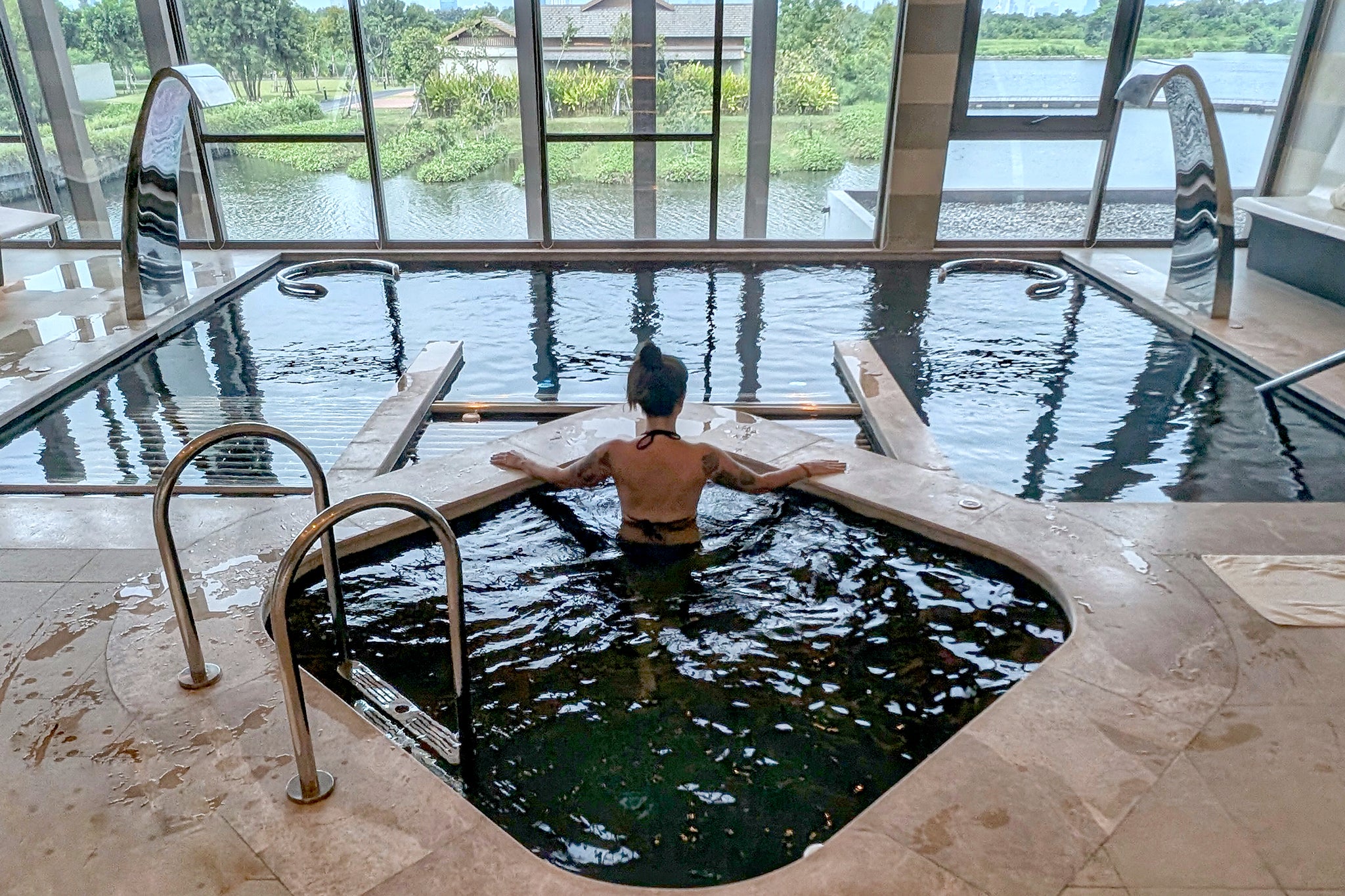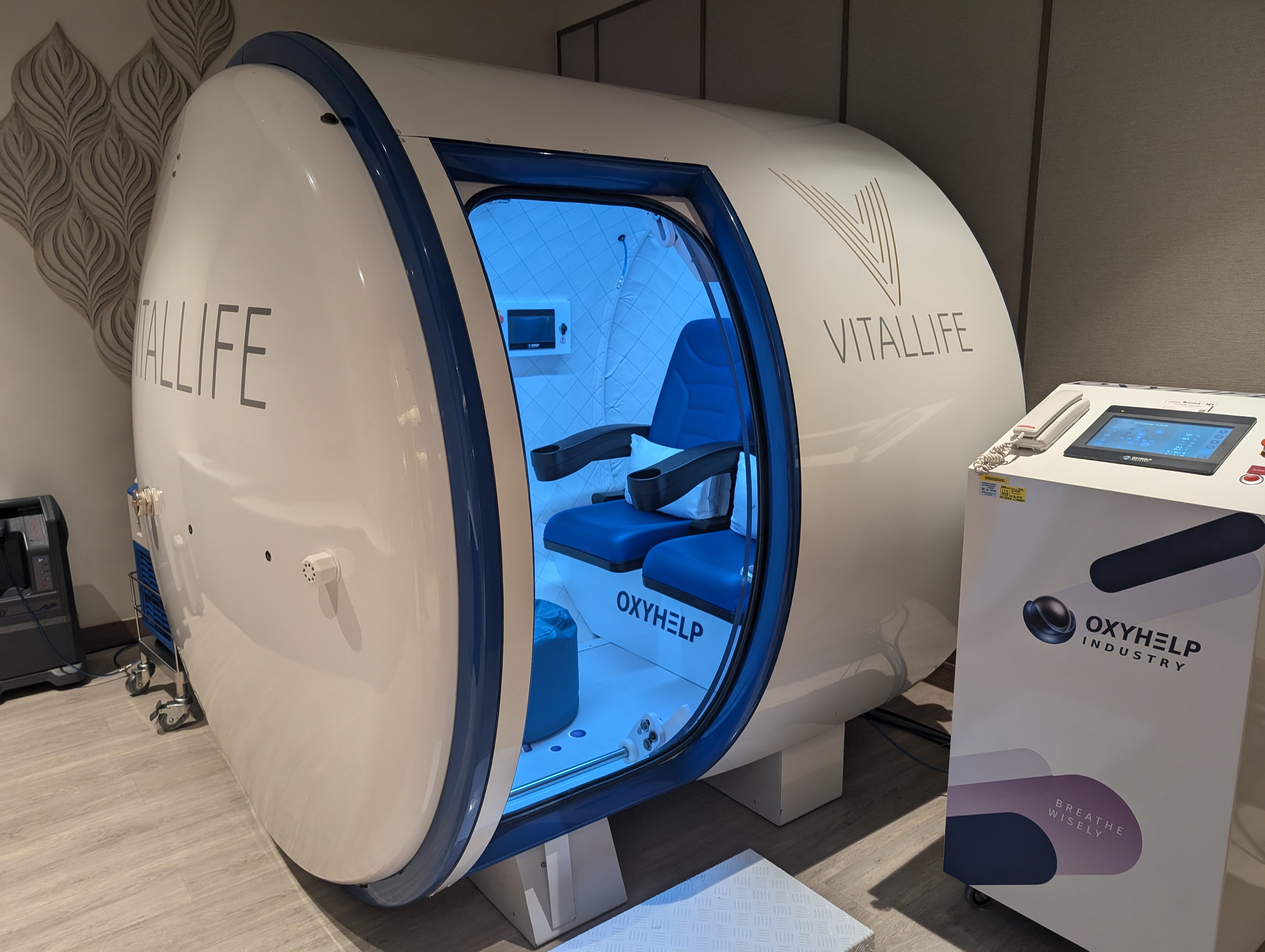Exhausted and burnt out: How a five-day de-stress programme helped me recover
All the symptoms of burning out were there and Lucie Grace had tried taking a break but nothing seemed to calm her racing mind. So, an invitation to try a mix of Eastern and Western practices to combat stress was one that she couldn’t turn down...


Staring at my phone, WhatsApp open, cursor flickering, I realised I couldn’t form a sentence to reply to my friend. I needed to reply to a simple question but the words weren’t coming out properly and it was giving me a headache. I left a voice note instead. Not being able to structure a text message, let alone an email or an article, is tricky when writing is your livelihood, but there I was staring at my phone, unable to write so much as a shopping list.
I know now that I was perilously close to burnout.
I hadn’t taken a break for 16 months. I have friends and colleagues who warned me to take it easy but as a freelancer, I didn’t feel I could turn down work and kept applying for bigger and tougher projects. Things piled up and became overwhelming. I couldn’t sleep or eat thanks to cripplingly painful gastritis. I looked gaunt, I was filled with a lingering sense of perma-dread: I am terrible at my job and I should quit. I was exhausted.
In their 2019 book Burnout: The Secret to Solving the Stress Cycle, Emily and Amelia Nagoski note that of all the components of the condition, it’s the work-related emotional exhaustion, or “a fatigue that comes from caring about too much for too long”, that hits the hardest because we get stuck in that mental state. Even when my physical ailments started to heal, I felt flat, lethargic and had zero energy or inspiration.
A Mental Health UK 2024 report on burnout found that 20 per cent of adults in the UK have been signed off work due to stress – which people attributed to poor sleep (64 per cent), money worries (53 per cent), poor physical health (46 per cent) and feeling isolated (43 per cent).
The main recommendation from their report is to “focus on the four pillars: sleep, exercise, nutrition and stress”. But how do you apply this when you’re a puddle? I tried taking a holiday. I tried taking a month off work. None of it helped with the mental doom loop that I was stuck in. I felt lost and when I read that burnout can take years to recover from, I knew I had to take action. So when an email came in September inviting me to attend the de-stress programme at RAKxa in Bangkok, it felt very serendipitous.
It’s not surprising that wellness retreats are booming. RAKxa has been flying this flag since 2020 – its USP being an integrative approach; mixing Western medicine and ancient Eastern approaches to healing. Knowing how nature can help with stress, the verdant riverside location of Bang Nam Phueng in southwest Bangkok, known as “the green lung”, was instantly alluring.
RAKxa is just far enough from the city centre to create a bubble of serenity, which you feel the minute you check in. Staff gently hit Tibetan bowls to welcome guests to the sanctuary before you are taken to meet a wellness adviser who looks after you for the duration of the stay; tailoring and tweaking the five-day de-stress programme.
Chatting to mine feels like therapy, as we plot out five days full of relaxation and rejuvenation. Exhale. Help is on hand.

The Western-style appointments are delivered in the VitalLife Scientific Wellness Clinic, an onsite branch of the city’s Bumrungrad Hospital. Straight off the bat, I’m invited to try cryosauna therapy; spending three minutes at -110C in a phone booth-sized capsule, wearing yeti slippers and gloves, thick icy air blows around me – I’m in Narnia without the coat.
It’s designed to improve blood circulation, which in turn makes the immune system stronger. It’s the first of a number of immunity-boosting treatments that I try; I have whole body light therapy; a photobiomodulation treatment that uses photo-light to reduce aches and pains in the muscles and boost circulation.
I really enjoyed falling asleep in this warm tube that looks like a 1980s sunbed. The snazziest is the hyperbaric oxygen therapy where I sit in a chamber of pure oxygen for 45 minutes as the atmospheric pressure enhances the distribution of oxygen through my blood capillaries, tissues and organs. This, I am told, improves energy levels and stimulates the natural healing process.
I also have a long chat about the gut-brain axis with one of the onsite doctors. Stress is a primary cause of more serious long-term health problems and we discuss how diet hugely influences our gut bacteria, which in turn affects the brain as much as our belly.
The gut produces chemicals that send messages that impact mood and, so, our mental health. To bring my stress levels down, I’m prescribed fibre-rich and anti-inflammatory foods like fruit, veg and whole grains.

The de-stress programme I’m on is designed to ward off any issues in the future; the idea is by tackling my fatigue and exhaustion now, it’s possible to bypass serious health problems in the future – the focus is prevention before cure.
RAKxa Jai is the Eastern-focused wing and where I spend most of my time. I’ve lived in Asia for five years on and off, so the non-Western side of things feels familiar.
I meet a Thai traditional medicine doctor who tells me my fire and air elements are imbalanced, which is similar to what I have been told by ayurvedic (Indian) doctors who said my kapha (earth) and pitta (fire) are imbalanced.
However we package this, I’m aiming for balance. I have a pranayama (breathwork) session with Kru Rock who reminds me that mastering our breath equates to mastering life, before a soothing shirodhara treatment where warm herbal oil is dripped onto my forehead for an hour to calm my nervous system (ayurvedic practitioners believe that this is the location of the third eye).
My favourite is the energy work. RAKxa’s sound bowls are cast during the full moon for extra power – Khun Oil plays the seven bowls for an hour, whose sound waves emit vibrations that align with the brain’s frequency. I emerge from a sound-induced slumber absolutely blissed out.
Next up is the floatation room; a 7ft wide pool full of Himalayan salt water that suspends me for 45 minutes while a therapist plays sound bowls (again). I gently wade out of the pool thoroughly rested and relaxed.
This is followed by scalp acupuncture with a Chinese medicine doctor whose micro-needling across the top of my head promises and delivers deep relaxation and sleep. And oh the sleep. The seven hours of solid, uninterrupted deep sleep in my shrub-surrounded villa just can’t be replicated at home.

Four days in and I am in a state of zen. Everything is seamless and easy. I elect to leave my phone in my villa, which is extremely freeing. I cycle around the place (all villas come with bikes) on autopilot; my mind is clear and peaceful, finally free from the anxiety that has followed me around for months.
I establish a calming routine of meditation, breakfast, hydrotherapy for cold baths every morning, with occasional stops at the gym for physio and pilates with Khun Jeng and aqua aerobics with Khun Yuki. Three nutritious meals a day are presented in their restaurant Unam, where food that’s tailored for me (vegetarian, non-dairy and anti-inflammatory) arrives like delicate works of art.
Five days later, I head home with renewed energy and perspective, with new practices under my belt. I am determined to keep the zen going and recognise how to catch burnout symptoms in the future.
An email comes in from one of my favourite clients who I’ve been hoping to work with for years saying she’s interested in a pitch I’d sent her and I think, yeah I can smash that, which is a feeling I haven’t had for a year. Am I fully fixed? Probably not. Do I feel ready for work again? Yes. Let me at it.
Lucie Grace was a guest on RAKxa’s five-day de-stress programme. Find out more about RAKxa Integrative Wellness here






Join our commenting forum
Join thought-provoking conversations, follow other Independent readers and see their replies
Comments